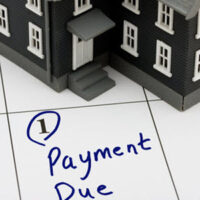How Does Chapter 13 Allow Debtors to Catch Up on Mortgage Payments?

There are many different myths about personal bankruptcy, and one of the common ones is that a debtor who files for bankruptcy will have to give up all of their assets. Not only is this not the case in any type of bankruptcy filing, but Chapter 13 bankruptcy (and other forms of reorganization bankruptcy) do not require the liquidation of any of a debtor’s assets. Moreover, Chapter 13 bankruptcy offers the added benefit of giving a debtor a chance to catch up on missed mortgage payments — even many, many months of missed payments — and ultimately to avoid foreclosure and remain in the property.
To be clear, if you are currently facing foreclosure and struggling with debt, filing for Chapter 13 bankruptcy will not require you to give up any of your property, including your home. How does Chapter 13 give debtors this option? Our West Palm Beach bankruptcy lawyers can explain in more detail.
Automatic Stay Stops Collection Actions and Foreclosure Proceedings
First, in a Chapter 13 bankruptcy case (and this actually happens in a Chapter 7 case, too, which does involve the liquidation of non-exempt assets), the automatic stay stops all mortgage collection actions and any foreclosure proceedings. Under the US Bankruptcy Code, the automatic stay is an injunction that applies to all creditors and debt collectors, and it stops them from moving forward with any existing collection actions or initiating any new ones — including foreclosure proceedings.
Reorganization Allows Debtor to Get Back on Track with Home Debt
Next, the type of bankruptcy — reorganization bankruptcy under Chapter 13 — becomes extremely important. With a reorganization bankruptcy, a debtor creates a repayment plan that will last for a period of three to five years, during which time the debtor will make regular monthly payments. At the end of the payment period, the debtor will have paid off all unsecured debt and priority debt, and will be caught up on mortgage payments with their lender.
In some cases, an individual debtor has too much debt to qualify for Chapter 13 bankruptcy. A debtor in this situation can often still stop a foreclosure and catch up on mortgage debt by filing Chapter 11 bankruptcy instead. A lawyer can assess your circumstances to clarify your eligibility for Chapter 13 or Chapter 11 bankruptcy.
Contact Our West Palm Beach Bankruptcy Attorneys Today
One of the primary benefits of a Chapter 13 bankruptcy filing for many debtors in Florida is that it allows them to halt foreclosure proceedings, catch up on mortgage payments, and ultimately remain in their homes. While there are other options for avoiding foreclosure in many instances — such as a short sale or a deed in lieu of foreclosure — those options typically do not allow the debtor to keep their home. Unlike those options, Chapter 13 bankruptcy offers a way to keep yourself and your family in your house or condo. If you have any questions, or if you are ready to get started on a Chapter 13 bankruptcy filing, you should contact an experienced West Palm Beach bankruptcy lawyer at Kelley, Kaplan & Eller, PLLC today to begin working on your bankruptcy case.
Source:
law.cornell.edu/uscode/text/11



